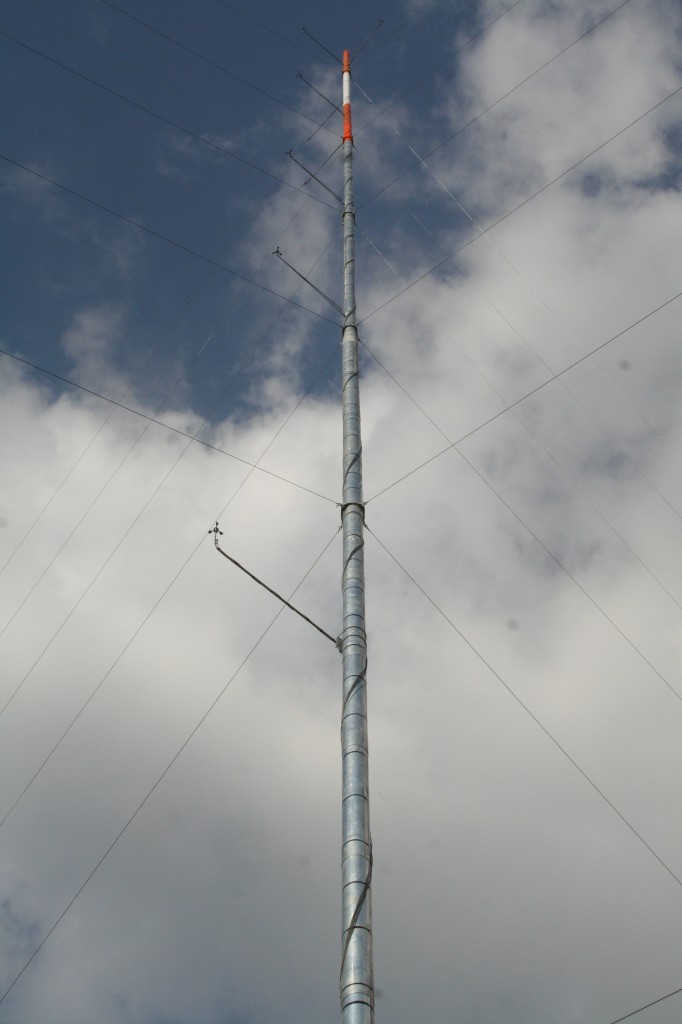The top state in the country for producing pork, Iowa produces billions of dollars a year from over 6,000 hog farms. With costs only rising, some farmers are looking for ways to cut down on bills. Combining two of Iowa’s strengths, hog farms and wind power, has the potential to save local farmers thousands of dollars every year by controlling input costs and eliminating electricity bills.
Rob Hach, the owner of Anemometry Specialists with his wife, Tara, started a division of the company called Wind and Solar Specialists, which focuses on developing projects for those interested in renewable energy. They work with the client from start to finish, meeting with farmers and utilities companies, helping with installation, guiding the process and seeing the project to its final steps. “We’ll go out and assess their need and put up a solar or turbine or a hybrid system with utilizing both resources,” said Hach. “Every project is different. We haven’t had an identical project yet. We’ll find out their electrical load, what their tax bill looks like, and we’ll get the right equipment. We really come in and we partner with our customers to make sure they’re getting the right equipment for their project.”
Two of his recent clients, Terry Murray and Arvid Baughman, have both installed Bergey turbines on their farms, receiving state and federal incentives to help build their turbines and erase a long-term cost of running their farms. Murray is a fifth generation Iowa farmer, running a 3,000-head hog farm. Murray is now saving nearly $10,000 a year, while Baughman is saving about $4,000 a year on his 750-hog farm. Murray’s four Bergey turbines have erased his electricity costs for the next 30 years. With land prices, fertilizer and other farm maintenance costs rising, the farmers were looking for a way to cut something out. “They wanted to no longer worry about their electric prices going up, and they wanted to do something about it,” said Hach.
Hach’s experience with renewable energy began when he was a child. In 1977, his father started selling wind turbines, and Hach remembers seeing them sit, temporarily, in the front yard before being transported to a client. In the 1980s, his father began working with larger turbines and following projects all over the nation. The Hach family left their farm in Iowa and traveled to Colorado, Maryland and Illinois before returning to Iowa. There, Hach began learning more about the field, and in 2002, he and Tara started their company. “Growing up, there were always people interested in generating their own electricity. They own it, it’s theirs, and they don’t have to pay for electricity again,” said Hach. “There’s always been an interest. It’s increasing these days, because people are aware of the environment and their surroundings and that they need to be doing something. We have a lot more consumers out there doing their research and understanding what the opportunity is.”
The company, which started with two employees, now boasts 30 people and is looking to expand. They already have a national presence, with projects extending from coast to coast. They are also developing partnerships with companies that provide similar things, in order to provide clients with complimentary services. Because government incentives for building turbines and solar panels are localized, the company looks for areas and clients where incentives are appealing. The incentives help fund projects, and vary from state to state and even region to region. “I like coming to work every day,” said Hach. “You feel good about what you’re doing. You drive by a project that you developed for a customer, and it looks great. You hear how happy they are about the project and it just feels good. It’s a wholesome feeling you have at the end of the day.”
The fight for renewable energy is constant, said Hach, who experiences constant changes in wind and solar energy federal incentives. Other energy resources, such as coal, oil and gas, have fixed incentives and do not face the same struggles. Hach wants to encourage consumers to make the choice to buy renewable energy and renewable fuels. Encouraging the implementation of clean and renewable energy can be done in two ways: “Legislatively by changing laws, which is slow and has a lot of hurdles,” said Hach, “And going to the store. Your dollars have more impact than your legislatures do. Choose who to buy a product from.”
Providing a demand for clean energy and fuel is the simplest, easiest way to encourage the support of businesses, farms and schools that use renewable energy sources. “They make a choice with their dollars,” said Hach, who selects his own products, such as beer and cell phone suppliers, based on the energy sources the companies use. “Companies such as Google and Microsoft are using more and more renewable energy to power their businesses. When I buy a product, I make sure I buy products from companies that buy their electricity from renewable energy,” said Hach. “We’re really in this together. Renewable energy is about employing people.”

